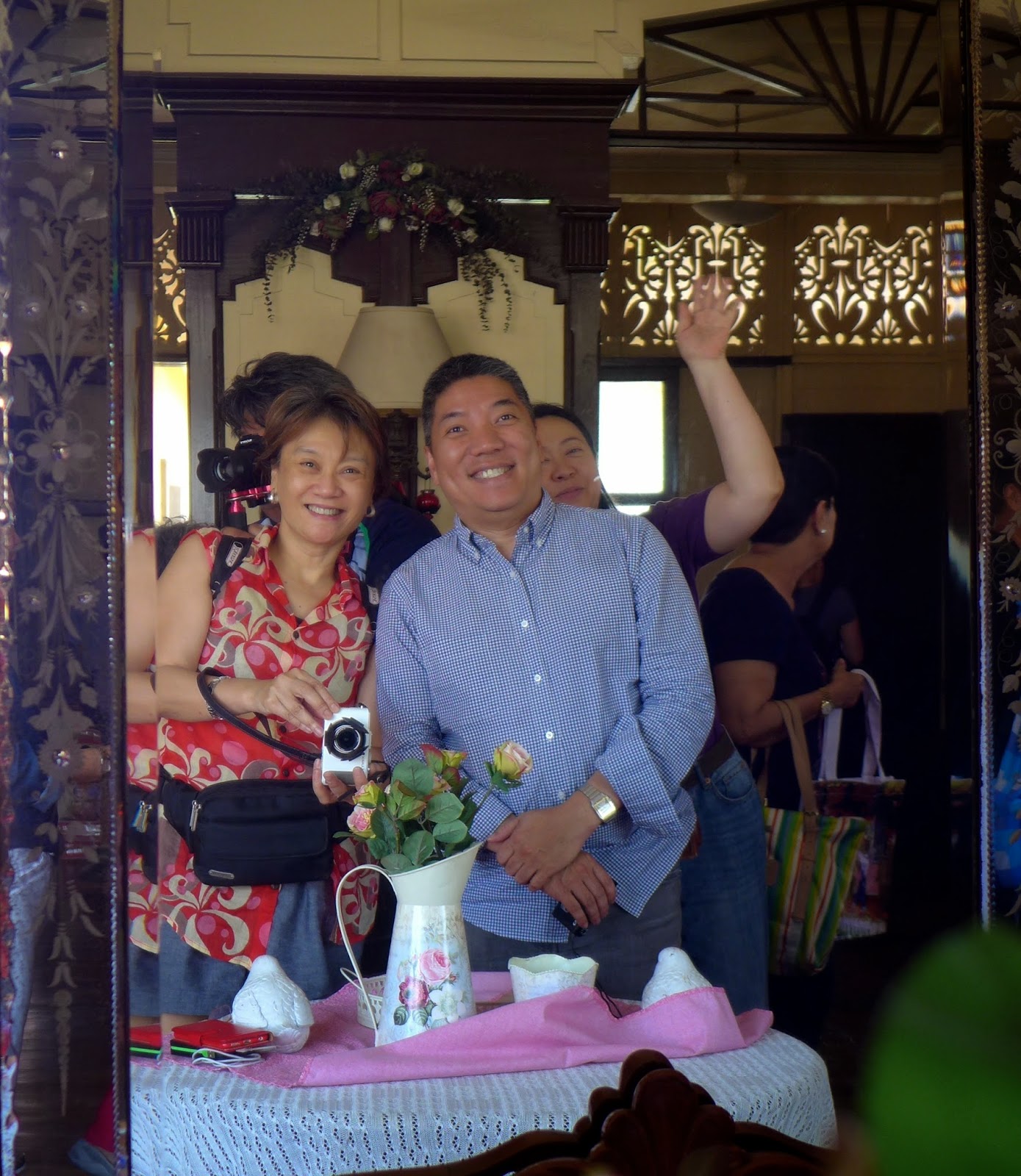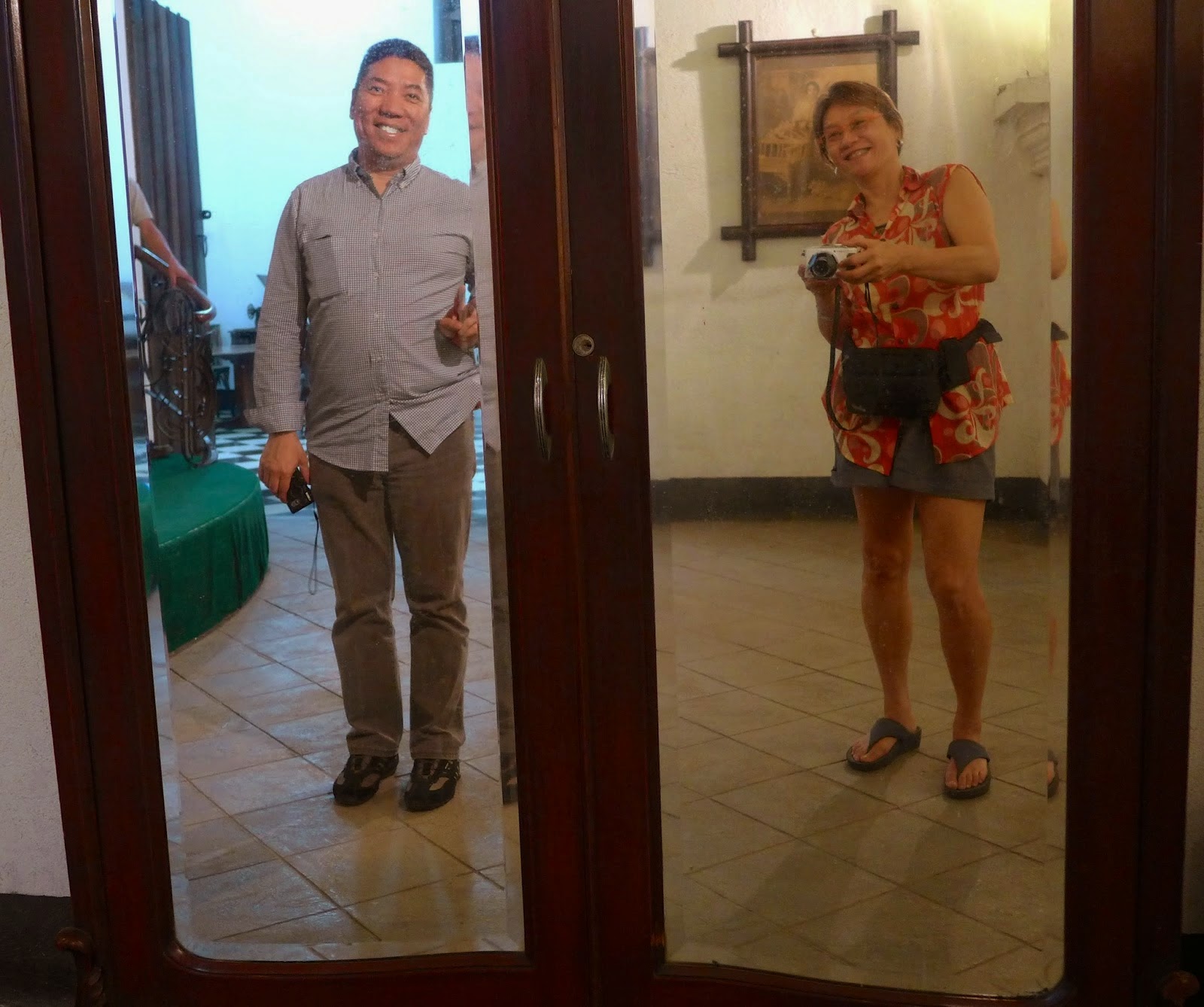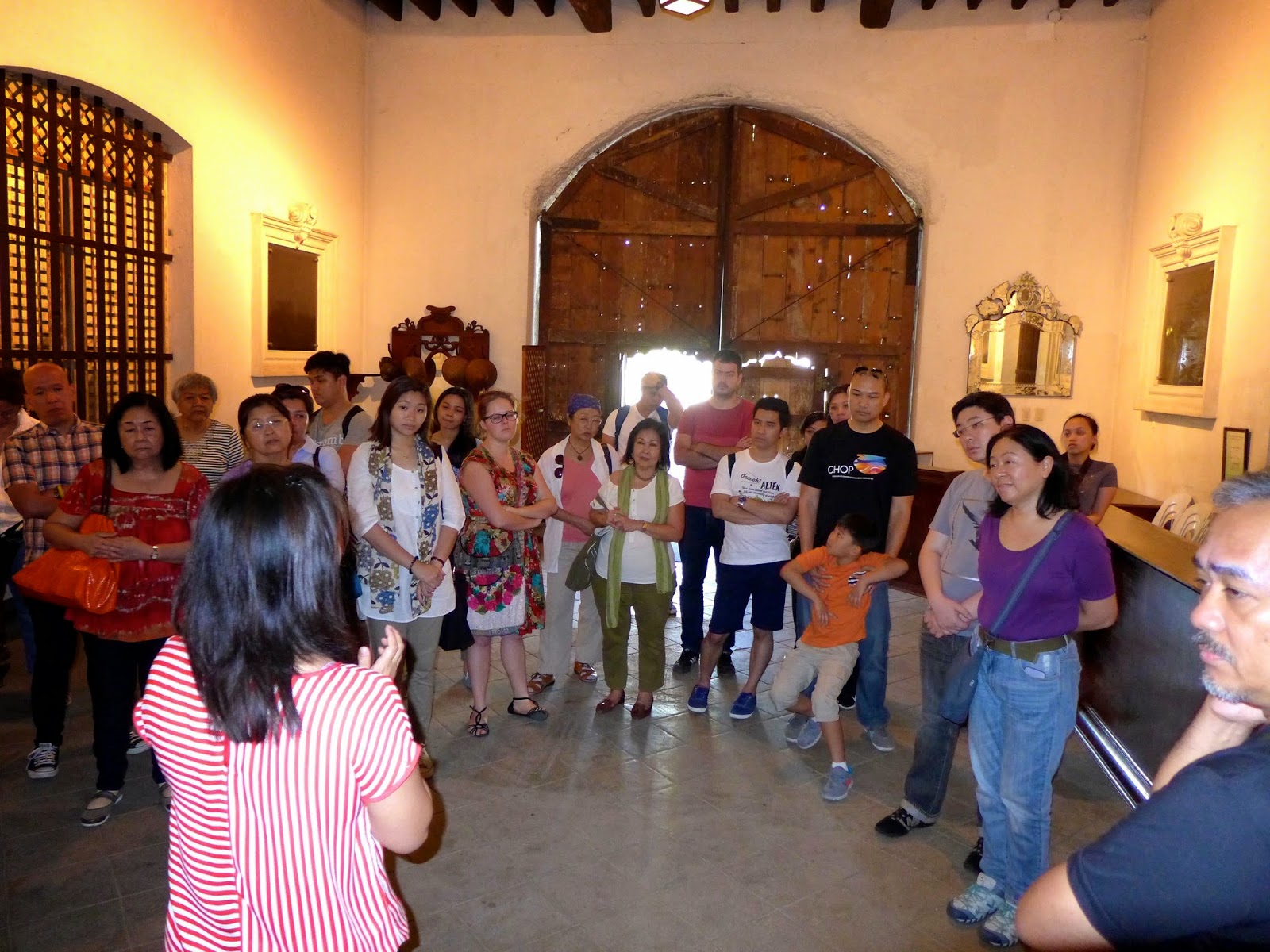Program
7:00 am Departure from Blue Bay on the corner of Macapagal Ave and EDSA.
You may leave your cars here if the Cavite Tourism Board will give us a
vehicle. We will keep you posted on this.
8:45 am Arrive Naic Town Plaza and the Immaculate Concepcion Church.
Meet Fr. Vir Mendoza, parish priest of Naic.
Cooking
Demo at the parish grounds by Ka Julia and Ka Rita, kakanin makers of Barrio
Sampalukan. They will show us how to make SINUDSOD, a crepe-like kakanin, made
from galapong, bahaw (day-old, fermented rice) and gata. Served cold with
crystal gulaman, coconut milk, coconut water, and ice.
She
will also bring to the cooking demo for tasting (and buying) the following
kakanin: Bibingkang Kanin, Pritong Muche, Pechi-pechi and Alikaya, a kakanin
made with purple rice.
We
will have a tour of the church and the convento. This is where Fr. Modesto
de Castro, the former parish priest of Naic, wrote and completed in
1864, “Urbana at Felisa,” a book
on etiquette, written in epistolary form, showing the social life and custom of
19th century Philippines. De Castro was given the title "Father
of Tagalog Prose.” Ige will also do a reading from a section of the book
"on eating” to entertain our members.
Since
rice is the center of the tour, we will also visit the Casa Hacienda de Naic
(now the Naic Elementary School). This building is a living proof of the wealth
generated by the Frailes and the Bishoprics from the 17th to the 19th centuries
that fueled the feudal economy and the subsequent revolution.
11:00 am Next stop is Tanza. Drive to Tanza is about 20 minutes from Naic.
We will stop at Calle Real Restaurant, a converted house that belongs to the
Tahimik Family of Tanza, which was considered a Mercantile Class family during
the late 19th and early 20th century. The house is quite modest, compared to
the stately homes of the hacienderos of Iloilo, Bacolod and Pampanga. The first
floor of the house, where the restaurant is now situated, was once a Kamalig,
or storehouse for rice. The second floor was the living area, which is used
until today, complete with old furniture and accessories. The parking area of
the restaurant was where the “kiskisan” or the rice mill once stood. This
is where we will sample their black paella, using squid ink and seafood, after
touring the house.
On
our way out, we will visit the Tanza Church or the Tanza Public Market, where
we can buy the famous Sopas Tanza (a dry biscuit to eat with soup) from the
Kaibigan Bakery, established in 1920, as well as other traditional foods from
the area.
1:30 pm Arrive in Gen. Trias, formerly known as the town of San
Francisco de Malabon. We will arrive at the town square or the plaza, where the
Municipio, Church and stately homes stood side by side. This square is the
archetypal layout of all towns established during the Spanish Colonial Period.
Gen. Trias is one of the most progressive towns in Cavite, first as an
agricultural town in the 17th to the 20th century, and now, as an Industrial
hub, being home to the Gateway Industrial Park.
Gen.
Trias is also the home of Valenciana, a rice dish similar to arroz valenciana,
but with a twist. However, we will just take out the Valenciana and bring it
with us to the DLSU Dasmariñas campus where we will all partake of it.
On
our way to Dasmariñas, we will pass by the Carabao milk factory of Gentri’s
Best. A small farmers’ cooperative that produces quesillo (kesong puti) and
carabao’s milk. For those of you who want to buy, please bring your
coolers with ice.
Along
the drive, you will see the remaining farmlands of Cavite, together with
subdivision development at break-neck speed.
3:30-4:30 Arrive in DLSU-Dasmariñas Campus. Tour of the Museo La Salle, a
transported house originally belonging to the Panlillio and Gonzalez Clans of
Bacolor, Pampanga. A stunning piece of haciendero/mestizo architecture.
Last
CR break
5:00pm Depart for Manila
Photo Gallery
(All photos courtesy of Pia Lim-Castillo)
 |
The indefatigable organizers of the tour: CHOP Secretary Ige Ramos (a native Caviteño) and
CHOP President Pia Lim-Castillo.
|
 |
| Pia Lim-Castillo and Ambeth Ocampo. |
 |
| Ige Ramos and Ambeth Ocampo. |
 |
| The verdant rice fields of Cavite. |
 |
| A bucolic scene from ________?, Cavite. |
The photos below of the Calle Real Restaurant were taken during the ocular visit by
Pia, Ige, Regee and Ian
prior to the March 14 main food tour.
 |
| The beautiful trompe l'oeil in the main dining room of Calle Real Restaurant, depicting a scene on the street leading to the Church of Tanza. |
 |
| The ocular visitors at the Calle Real. |
 |
| The famous, delicious, and very popular Paella Negra. |
 |
| Paella Jambalaya. |
 |
| Chatting with owner Noel Lozada. |
 |
| Millie & Noel Lozada showing us the upstairs, which will soon be turned into a cafe. |







































No comments:
Post a Comment